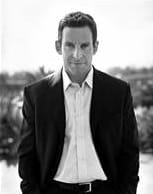AI's Morose Mania
The more excited we are as developers, the more we have to worry about knowledge workers

I was just struck this morning with a realization about Sam Harris’s latest book: The Moral Landscape. I’m browsing through portions of it again after reading it when it was released, and I’ve come to realize that it’s not simply a great book with an interesting proposition regarding science and values.
It’s quite sneaky actually, although I don’t think it’s on purpose. I am wondering now how much of it he knows about vs. what simply took on a form and strength of its own.
Basically, his main proposition is that science can, and should, help guide humanity toward the good life. In other words, not just in the sense of teaching us about what is, but also telling us what should be. It’s the demolition of a centuries-old and violently-held belief that science cannot tell us anything about the big questions.
So, that’s a big bite, to be sure. But I think it’s the smaller one in the book1. I think the real brilliance, and what will change the world more is what he says about values and truth claims. In short, he seems to have written a brilliant science book where he claims more of life’s questions for science, but in fact he’s written one of the most important philosophical works ever created.
The fundamental argument is that facts and values are not as separate as people think they are, given that they are both built upon a given view of how the world works. He writes:
He goes on to say:
This seems like a necessary detour to get to where he’s going, but this minor point, if accepted, will fundamentally change how we view the world. To me this is the parent idea, with one of the outcomes being the main point that people think he’s making.
I honestly think we may be looking at one of the most important philosophical works in a long time, and I find it amusing that most people–including those who enjoyed the book–probably think it’s just another "New Atheist" book. ::
[ EDIT: Removed some hyperbole. ]
1Keep in mind this is a first-waking-moment type of thought; I haven’t applied much scrutiny as of yet.